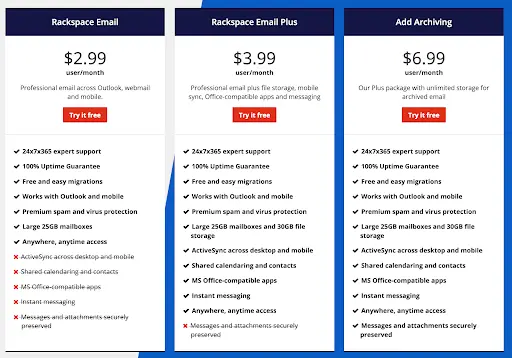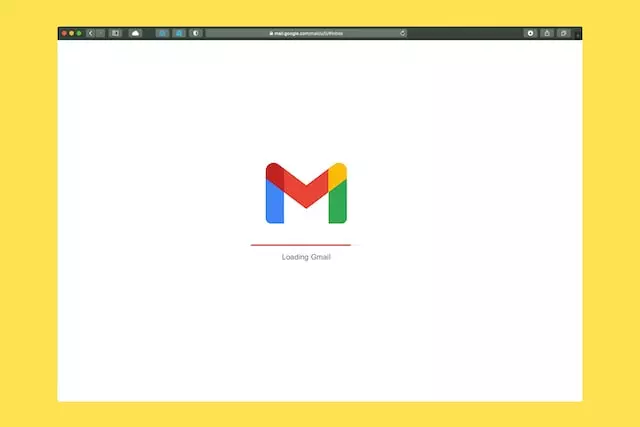Email remains by far the most dominant form of online business communication. While there are many free personal email providers such as Gmail, Yahoo, and even AOL, if you are a business owner or are considering starting your own business, it is imperative that you have a professional email address.
What is a “Professional” Email Address?
Simply put, a professional email address is one that does not end with @gmail.com or a similar free email account and is used to communicate in a business environment. A professional email includes your name and domain in the following format – yourname@businessname.com.
Professional email address format and examples
A personal email address usually ends with either gmail.com, yahoo.com, or some other domain that is not owned by you. A professional email address ends with your domain and is owned by you or your business. For example, Bill Gate’s work email address would be bill.gates@microsoft.com. Of course, Bill Gates could also have an Outlook account (also owned by Microsoft) and his email could be bill.gates@live.com, but he certainly would not send any professional emails using his hotmail.com email address.
Benefits of a professional email address
Here are 9 benefits of using a professional email address:
1. Credibility
A professional email provides credibility to your business because it shows that the email is coming from a legitimate business address versus a personal free email address. A professional email address is also less likely to be marked as spam.
2. Security
A professional email is more secure than a free email address because you are paying for the service and the providers have a tremendous reputational risk of any data breaches. As a result, professional email service providers spend a lot of resources on making sure their business email services are highly secure and never go down.
3. Functionality
Professional email services provide advanced tools for administrators to block certain emails, scan for keywords, or prevent the opening of executable files. For example, a domain administrator can block emails sent by a specific company, block emails that have hateful content or prevent someone from opening a file that may contain a virus that could infect their network. A free email address does not have such functionality.
Also, professional email addresses can connect with various third-party apps to increase the features of email and enhance the user experience. For example, Google and Microsoft are the major providers of work email programs. As a result, there are many third-party app developers who create add-on software specifically for Google and Microsoft’s professional email systems.
4. Flexibility
A professional email address gives you the flexibility to create custom emails for different departments of your business. For example, you can have your primary email address with your name such as elon.musk@tesla. com, but you can also have various other custom emails for different purposes, such as info@tesla.com for general emails; sales@ford.com for sales questions; support@google.com for support-related questions. You can also create groups so that multiple people can receive an email sent to one email address.
5. Storage
Free email service providers have less storage space whereas professional email providers offer more storage. For example, the free version of Google’s Gmail provides 15GB of free storage, but the basic Google for Business email plan starts with 30GB and can go unlimited.
6. Brand awareness
A professional email service increases brand awareness by continuously displaying your website domain.
7. Ownership
You own the domain and email of a professional email service and it cannot be taken away from you.
8. Support
Professional email service providers offer robust support usually 27/7, but free email systems do not.
9. Retention
Professional email services provide advanced retention tools for administrators to easily back up and restore emails. This function is especially useful in legal proceedings when a court requests all emails from a given user.
How to create a professional email address
The first step is to own your own domain. Once you own a domain, then you can add an email hosting service. You can own a domain without having to create a website.
How to choose a professional email service provider
Of course, pricing is important, but it should not be your primary reason for choosing an email service provider. You should also consider any added functionality and collaboration features offered by the service provider. Your website hosting company may offer you a free basic business email with limited features, but if you are serious about growing your business, you should invest in a more advanced professional email service provider. The most popular professional email service or hosting providers are:
Google Workspaces
Google Workspaces is one of the dominant players and well suited for small businesses. Formally known as G Suite, it not only provides a custom email address for your domain, but each plan also comes with collaboration tools such as Drive, Calendar, Gsheets, Docs, Slides, Meet, Chat, Forms, and more. It has 4 plans to choose from Business Starter – $6 / month per user
- Business Standard – $12 / month per user
- Business Plus – $18 / month per user
- Business Enterprise – call for pricing
- The pricing chart for each plan is displayed below.

Microsoft 365 (formally known as Office 365)
Microsoft has been in the professional email business for a very long time. Formally known as Office 365), it is very similar to Google Workspaces except that its collaboration tools include Microsoft Office (Word, Excel, PowerPoint), OneDrive, Outlook, Teams, and more. Pricing for Microsoft 365 is confusing because there are different plans and pricing for Personal and Family, Business, Enterprise, or Education. The pricing permutations are numerous. The pricing chart below is for the Business plans which are most appropriate for small businesses.
One of the biggest benefits of Microsoft 365 is the ability to download the Office suite of applications on a computer. Conversely, Google Workspaces applications (i.e. Docs, Gsheets, Slides) are only available online.

Zoho Mail
Zoho is known more as a CRM than an email provider; however, Zoho does have a very basic email service for businesses with reasonable prices. The business email pricing plans are listed below.

Rackspace
Rackspace is another basic email provider with prices ranging from $2.99 /month to $6.99 /month.

How to get a free professional email
Of course, if you are on a very tight budget, don’t need all the additional bells and whistles of Google Workspaces or Microsoft 365, and do not plan to expand your business beyond yourself, then here are some domain hosting companies that also offer free business email accounts. Here is a list of hosting companies that also provide free email along with your paid hosting package.

